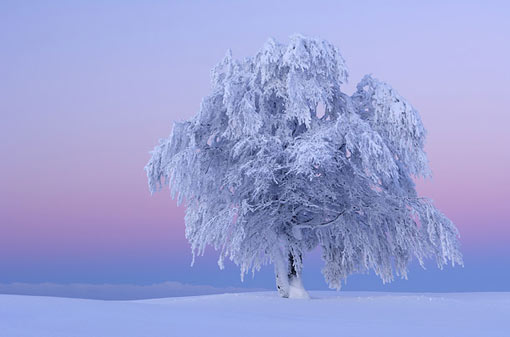You are hereWcP.Poetic.Thought's blog
WcP.Poetic.Thought's blog
So We'll Go No More A-Roving - Poem by Lord Byron
So we'll go no more a-roving
So late into the night,
Though the heart still be as loving,
And the moon still be as bright.
For the sword outwears its sheath,
And the soul outwears the breast,
And the heart must pause to breathe,
And love itself have rest.
Though the night was made for loving,
And the day returns too soon,
Yet we'll go no more a-roving
By the light of the moon.
"Is Past a past or a ghost?" - excerpt from poem "Off the Train of Morrow"

(quote)
Excerpt from Off the Train of Morrow
by LuCxeed
Is Past a past
or a ghost?
Mind of Time, haunted,
disturbed, confused,
cannot think, nor rest...
(unquote)
From the book: Love’s Footsteps ~ dedicated to a Bridge for Wisdom to Walk on
the First Kiss / of love, prime of romance /...in the blaze of ever-sweet bliss / chuckles from the top of Everest

(quote)
Chuckles from the Top of Everest
by LuCxeed
Love delivers kisses aplenty
so does lust or affection
so does scheme or infatuation
so does courtesy or flirtation
Among the plenty, the First Kiss
of love, prime of romance
crowned with a diamond crown
in the blaze of ever-sweet bliss
chuckles from the top of Everest
laughing at the rest
of romance fled
as Daylight brooms the bedroom
(unquote)
From pages 19 & 20 of the book: Love’s Footsteps ~ dedicated to a Bridge for Wisdom to Walk on
I’ll be gone to the battlefield/ Don’t wait for me long...darling/ Just hand me our engagement ring/ Remember me yet you’re free

(quote)
Soldier’s Engagement Ring
by LuCxeed
I’ll be gone to the battlefield
Don’t cry, my darling
Just return to me our engagement ring
I’ll be gone to the battlefield
Don’t wait for me long, my darling
Just hand me our engagement ring
Remember me yet you’re free
I’ll ever hold the pair of rings
To my heart as I’m holding you now, my darling
I’ll be gone to the battlefield
Don’t cry. Don’t cry, my darling
Just return to me our engagement ring
(unquote)
From pages 53 & 54 of the upcoming book: Love’s Footsteps ~ dedicated to a Bridge for Wisdom to Walk on
Portraits of wondrous Earth: ice storm glazed tree; poetic snowflakes; ice caverns; Giant's Causeway; geysers; sea unicorns

(quote)
Ice
The residue of an ice storm glazes a beech tree, pushing its branches to a near-breaking point. Ice storms are formed when two layers of cold air (one near the earth's surface, another far above) sandwich between them a tier of warm air. Precipitation from the top layer starts out as snow, but when it falls into the middle, warmer belt, it melts into rain. Then, on its way through the lowest belt, it undergoes a little-understood process known as "supercooling" which causes it to chill well below the freezing point of water, yet still remain liquid. When this unnaturally cold water hits the ground, it instantaneously freezes into a translucent glaze that takes on, in intricate detail, the shape of whatever it surrounds.

Clouds
Water is a shape shifter: familiar in its liquid and frozen forms, it is invisible in its third form, as a vapor, until it coalesces into clouds overhead or shrouds us in ghostly fog. One of nature's everyday wonders, clouds hide in plain sight until they are touched with the sun's glory at sunrise and sunset or pile up to form a lightning-generating, anvil-headed cumulonimbus thundercloud.

The Sun read more »
15 Sep 1795 "Lyrical Ballads" published by Samuel Taylor Coleridge and William Wordsworth

(quote)
Coleridge first met William Wordsworth in 1795, when he traveled to the Dorset home where the poet lived with his sister Dorothy. He walked 50 miles to get there, and as he approached Wordsworth noticed that their over-excited visitor "did not keep to the high road, but leaped over a gate and bounded down a pathless field by which he cut off an angle." The two bonded instantly. When Wordsworth learned that Coleridge moved to Nether Stowey, he and Dorothy packed up and moved there too.
For a solid year between 1797 and 1798, Wordsworth and Coleridge were in close, daily contact. They took long walks together and spent hours discussing poetry and literature. The two men were at the forefront of what is now known as the Romantic period. For Romantics, nature was the only source of real inspiration, the only place where men could truly connect to their deepest and most powerful emotions. In the rugged beauty of the Lake District, Wordsworth and Coleridge had nothing but inspiration. They began to talk of a new kind of poetry, one that relied on the reader's imagination and the honesty of simple language to evoke powerful feelings. They decided to write a collection of poetry together. Wordsworth's job was to write poems about everyday topics; Coleridge would tackle poems about "persons and characters supernatural" that were true enough to provoke in readers "that willing suspension of disbelief for the moment, which constitutes poetic faith."
(unquote)
Image courtesy wordsworthclassics.com
Nature's life: "to pass away and come again in blooms... Its birth was heaven, eternal it its stay" - John Clare
"All nature has a feeling: woods, fields, brooks
Are life eternal: and in silence they
Speak happiness beyond the reach of books;
There's nothing mortal in them; their decay
Is the green life of change; to pass away
And come again in blooms revivified.
Its birth was heaven, eternal it its stay,
And with the sun and moon shall still abide
Beneath their day and night and heaven wide."
~ from poem All Nature Has A Feeling by John Clare


















